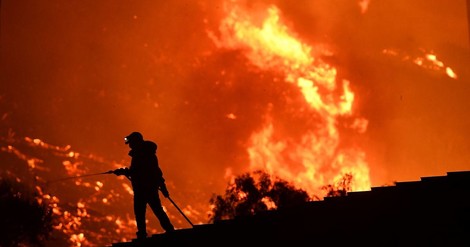Your podcast discovery platform
Curious minds select the most fascinating podcasts from around the world. Discover hand-piqd audio recommendations on your favorite topics.

piqer for: Climate and Environment Global finds
Andrea is a writer and researcher based out of Chicago. Andrea has a Bachelor's degree in environmental science from The Ohio State University and a Master's in Environmental Planning and Management at National Taiwan University, where she specialized in climate adaptation and urbanization. She writes for TaiwaneseAmerican.org, and sends out a biweekly newsletter which includes articles on politics, environment, identity, and intersections of race, class, and gender (http://eepurl.com/bPv-F5).
California's Fiery Climate Emergency
It is December. Wildfires, once thought to be bound by summer and autumn months, have ravaged southern California in the last few days. California is experiencing its first winter megafire in history, which is currently burning an area larger than the city of Atlanta and is only 5% contained. "In its first several hours, the Thomas fire grew at a rate of one football field per second, expanding 30-fold, and engulfing entire neighborhoods in the dead of night." But this fire is not the only fire burning. No fewer than six major fires have destroyed hundreds of homes in what is supposed to be the rainy season. Climate change is here, and we are unable to contain it. "The advent of uncontrollable wintertime megafires in California is a turning point in America's struggle to contain the impacts of a rapidly changing climate."
Of course, scientists have been warning Americans about the impacts of climate change for decades. It was long predicted that the fire season may lengthen, and that has indeed been the case. Rainfall has decreased, pretty significantly in this year. Exacerbating all this is the huge numbers of people living in southern California. It has been a harrowing year for Houston, for Puerto Rico, for California. People are starting to see climate change materialize in front of their eyes daily in the form of walls of fire or swathes of water.
It seems that the most extreme of climate models have been the most accurate so far. "Increasingly, that [temperature rise] rise will accelerate, say the models, unless the world institutes a sharp reduction in emissions. Should we continue on a business as usual pathway, the new findings show a 93 percent chance that global warming will exceed what was previously considered a worst-case scenario by 2100." And according to scientists, we are locked in for these impacts and past the point of no return. We can decrease our carbon emissions, but climate adaptation is also needed. And needed now.
